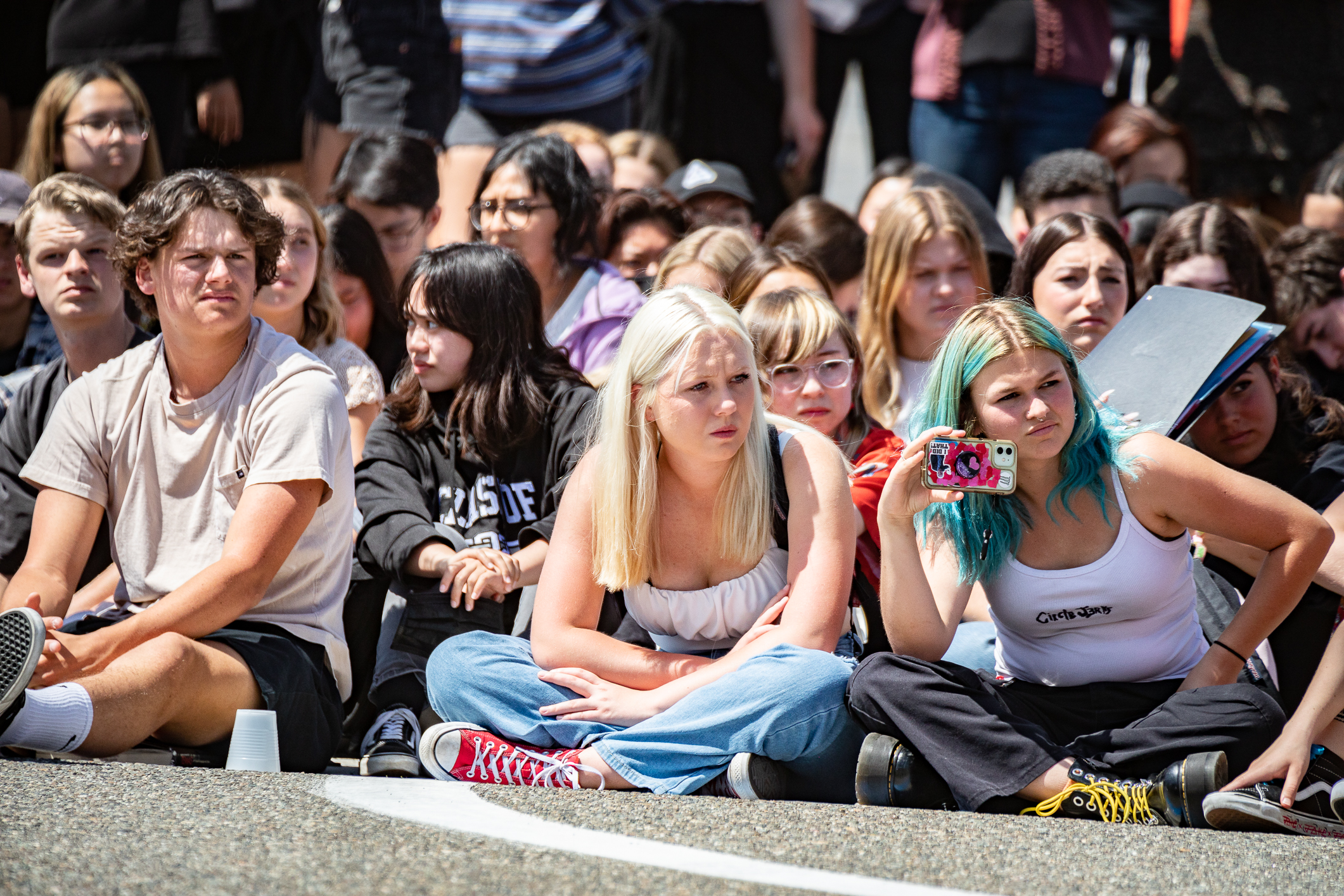This year, a new group is joining California’s voter base as two school districts grant 16- and 17-year-olds the right to vote.
For the first time in California, teens this age in two Alameda County school districts—Berkeley and Oakland—have the right to vote in school board races this November.
“The fact that 16- and 17-year-olds now have the right to vote in Board of Education races in Oakland means they are now more engaged in our political process earlier in life, and more invested in what happens in their schools for them, their classmates, and all students who follow in their footsteps,” John Sasaki, director of communications at Oakland Unified School District told The Epoch Times on Nov. 5.
The Alameda County Registrar of Voters is using California’s preregistration system to register 16- and 17-year-olds for school board races in Oakland and Berkeley. Eligible teens in these cities must sign up as “youth voters” through the state’s preregistration platform.
To vote in these school board elections at ages 16 and 17, one must be a resident of the city and a U.S. citizen.
According to the county registrar of voters, about 1,500 youth had registered to vote by the Oct. 21 deadline.
The Epoch Times contacted Berkeley Unified School District for further comment.

I VOTED stickers are available in multiple languages at the Los Angeles County Registrar-Recorder/County Clerk in Norwalk, Calif., on Oct. 7, 2024. (Sophie Li/The Epoch Times)
The district’s decision is supported by studies emphasizing the benefits of building voting habits early. A recent study from the University of California–Los Angeles found that it’s easier to develop these habits in high schoolers before factors such as relocating for college or work begin distancing them from civic institutions.
Berkeley Mayor Jesse Arreguín echoed this message and said that it can foster a culture of civic engagement.
“By giving 16- and 17-year-olds the right to vote about their education, we help to create lifelong voters who are more likely to participate in future local and national elections,” Arreguín said in the statement. “Early involvement fosters a sense of civic duty and strengthens our democracy for generations to come.”
Oakland Mayor Sheng Thao also praised this change.
“Voting is not just a right but a civic duty, and extending this right to 16- and 17-year-olds will foster a culture of civic participation from an early age,” Thao said in the statement.
Berkeley passed the ballot measure granting voting rights to 16- and 17-year-olds in school board races in 2016, followed by Oakland in 2020. However, implementation was delayed until this year due to technical challenges with the new system.
“This has never been done before in California, and we had to make sure that it was done properly,” Registrar of Voters Tim Dupuis said in the statement. “I would like to thank the Board of Supervisors for their support in helping make it possible for 16- and 17-year-olds in Oakland and Berkeley to vote for school board in November 2024.”
Several California cities have rejected similar measures. San Francisco voters defeated youth voting measures in both 2016 and 2020, and Culver City voters narrowly rejected a similar measure in 2022.
Critics cite age-based restrictions, such as the legal drinking age and higher car insurance rates for teenagers, as evidence of young people’s limited decision-making and risk assessment abilities.














